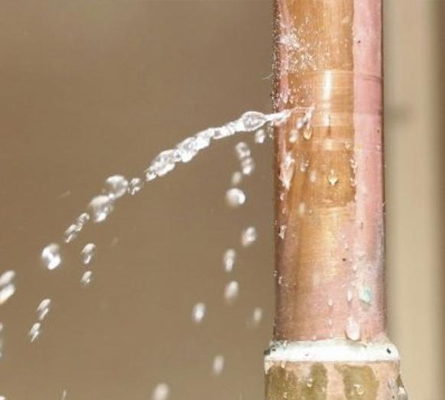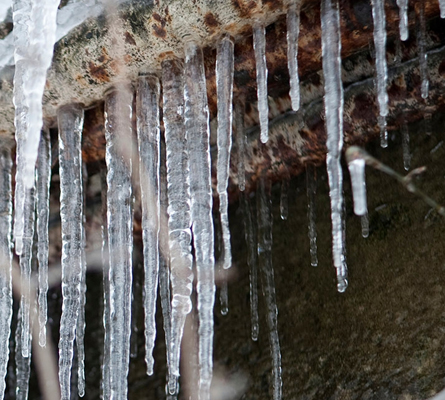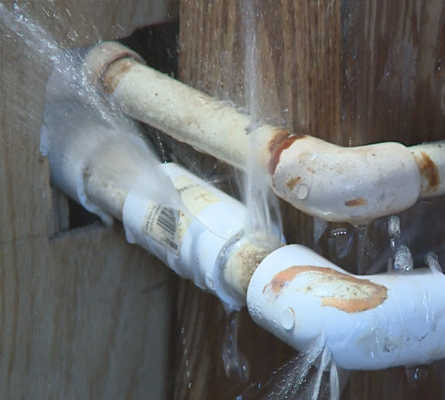
Frozen Pipes
Dropping winter temperatures can cause extensive water damages throughout those parts of the US most affected by winter weather. Every year, restoration-company phones ring off the hook during harsh freezing weather. Customers call to report frozen pipes, leaks and floods in their homes, as well as businesses. We want to address water damage preventative measures to help keep you and your family safe and your property dry.

Water Damage and Property Loss
Property loss can easily occur when water pipes freeze and break, causing damage to walls, ceilings, floors, furniture and other possessions. Even a small crack in your water pipe can leak enough water to flood your home. In fact, in just one day, 250 gallons of water can be discharged from a pipe crack as small as 1/8 inch. So, it is imperative to be proactive and take action to protect your home.
Preventing Water Damage from Frozen Pipes
Before extreme weather strikes, prepare your home to prevent water damage before it occurs. When temperatures dip, take immediate action to prevent water damage:
- Open kitchen and bathroom cabinets to allow warm air to circulate around water pipes.
- Open taps throughout the house to allow water to drip and to keep water pipes from freezing.
- When going out of town, keep thermostat at 55 degrees and ask a trusted neighbor or friend to watch your home for possible leaks. Also, turn your water off and drain water supply lines.
Keep in mind that homeowners’ insurance companies are more apt to pay your water damage claim if you can show that you have done your due diligence and maintained your property in a reasonable manner.
Find Your Local “Restoration Renegades” Today

Plan to Prevent Water Damage
Long term strategies for water damage prevention involve regular home maintenance year round. Pipes in the water supply system that are exposed to cold outdoor air are more likely to freeze and burst. The main water pipe carrying water to your home is an example of such a pipe. Exterior wall water pipes as well as attic pipes, basement or crawlspace pipes, and garage pipes, are more liable to freeze and burst. With this in mind,
- Check your water supply system regularly for possible leaks, cracks and regular wear and tear.
- Address property maintenance issues promptly, before they get out of hand.
- Winterize and insulate water pipes to minimize the likelihood of water damage from frozen and burst pipes in your home.
- Seal and caulk both air and water leaks to prevent water pipes from freezing and bursting.
- Consider adding insulation to your attic, basement or crawlspace.

Prevent Frozen Pipes from Bursting
When pipes freeze in sub-zero weather and then thaw out as temperatures rise, frozen pipes tend to crack and burst, which causes water leaks and flooding. If you discover a frozen pipe in your home, you can still prevent it from bursting and causing water damage.
- Turn off the main water supply.
- Turn and leave your water taps on.
- Remove valuables and household possessions from the area that might be exposed to water damage if the frozen pipe bursts.
- Turn on the tap closest to the frozen pipe and gradually thaw out the ice in the frozen pipe by melting it with a heat pack. Begin applying heat at the area that is closest to the tap and slowly move farther away towards the rest of the frozen pipe.



